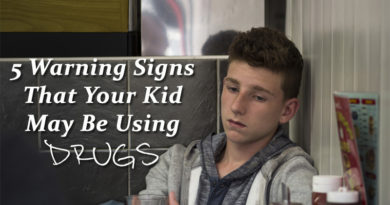Alcohol Abuse And Stopping: Symptoms, Effects, and Recovery
Do You Have An Alcohol Misuse Disorder? When it comes to drinking alcohol, the line between recreational consumption and addictive behavior can seem blurred. In many cultures, drinking is simply part of social life. Joyous celebrations like weddings entail drinking. College parties entail drinking. Karaoke night at the bar entails drinking. Post-work lounging time entails drinking. When consuming alcohol is a routine, normalized part of everyday life, how do you know your drinking has developed into a serious problem? How can you avoid returning to addictive behaviors?

Psychologists answered this question by creating the term alcohol misuse disorders. It describes a spectrum of unhealthy alcohol-related conditions: alcohol abuse, alcoholism, and alcohol dependence. If you find yourself unable to control how much alcohol you drink or realize that your drinking habits result in negative consequences, you may fall on this spectrum.
What Symptoms Should You Look Out For?
Generally, if you find yourself unable to control how much alcohol you drink or realize that your drinking habits result in negative consequences, you likely fall on this spectrum. But, what does this look like in day-to-day life?
One thing to look out for is when alcohol puts you or those you love in dangerous situations. The most fatal example of this is drunk driving. This activity is illegal, threatening the lives of you, those in your vehicle, and everyone else on the road. Sacrificing safety due to being in a state of intoxication is a red flag that it is time to seek help.
However, not all signs of alcohol misuse disorder are so clear to you and those around you. Maybe it used to only take one can of beer to satisfy you, but now you drink five each night. That type of tolerance building often occurs slowly and goes unnoticed, but it is something to consider.
What to Know About Withdrawal
Withdrawal is a telltale sign that alcohol has become a dependency. Many people who experience alcohol withdrawal report increased anxiety, insomnia, chest tightness, irritability, muscle tension, and sweating. It is a good idea to prepare for withdrawal by planning with a trusted medical professional about how to handle it effectively. Medical supervision can help avoid serious ones such as heart attacks, strokes, and seizures.
If that list of potential withdrawal symptoms seems intimidating, consider the alternative. What happens to those who continue to be ruled by addiction? The list of health concerns is even more expansive, especially concerning the liver, brain, and heart. So, instead of looking at withdrawal as an incentive to keep drinking, think of it as a step to preventing further, more dangerous health issues.
Are You Ready for Recovery?
Making the choice to commit to recovery is a step in the right direction. Alcoholism treatment is a multilayered process. Treatment plans vary based on a few factors: a person’s health, amount of drinking, and past history of addiction and withdrawal. It takes commitment and willpower. Medical support and therapeutic tools are also essential. Another factor in recovery is social support. Self-help groups, online communities, physicians, counselors, alcohol rehabilitation, helplines, and websites are available to those undergoing this change. No one is alone; it is important to find people who will help.
Want to Know More?
Whether an individual with alcohol misuse disorders or someone seeking help for a loved one, there is plenty of information and support available. Admitting it is time to seek help is a good sign that you are ready to battle alcohol misuse disorders. Now is the time.



